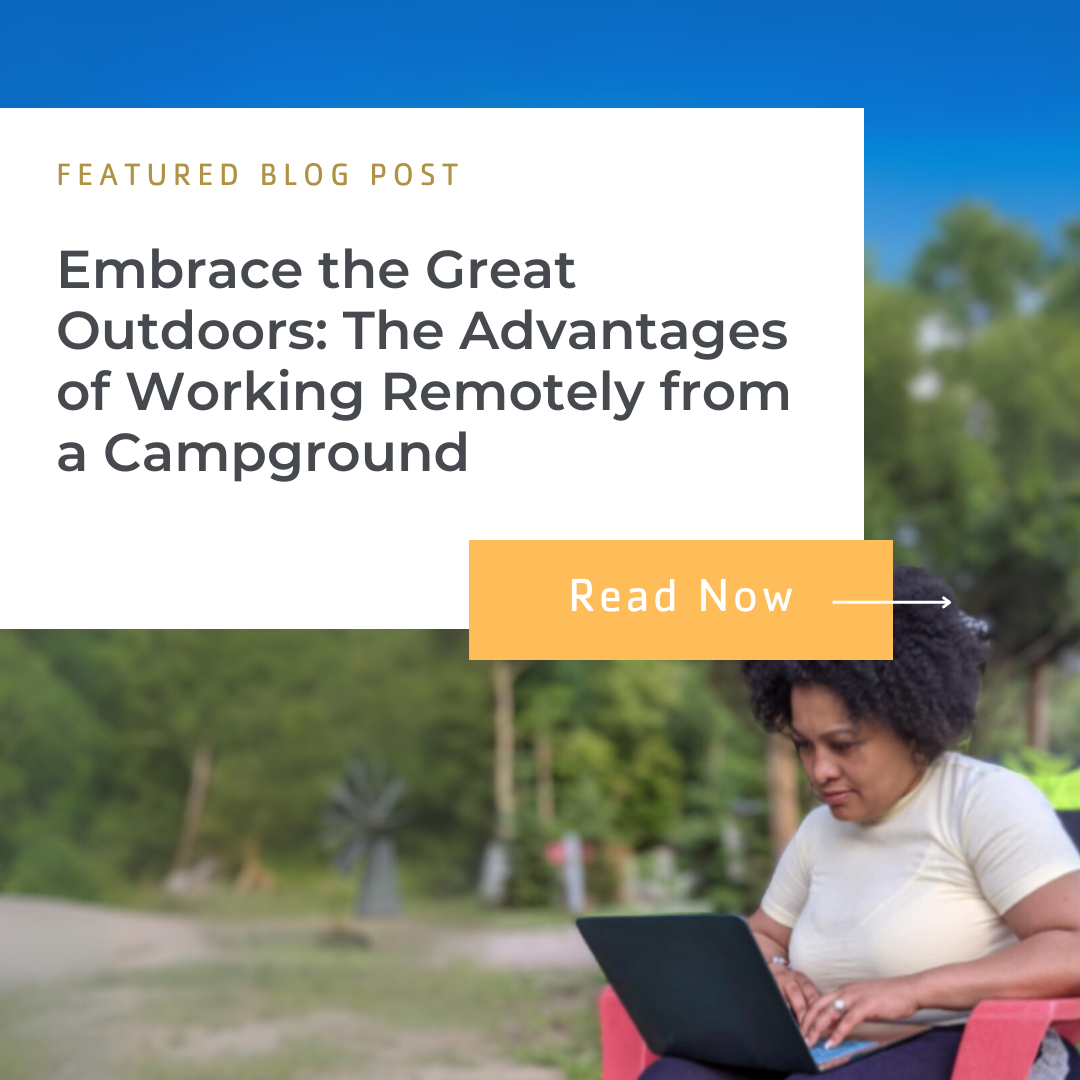Embrace the Great Outdoors: The Advantages of Working Remotely from a Campground

The landscape of work has dramatically transformed over the past decade, moving from the confines of office cubicles to adaptable and creative environments. Amid this revolution, remote work has secured a place of prominence, offering unparalleled freedom and flexibility. In recent years, the concept of remote work has revolutionized the way we think about traditional office environments. While coffee shops and co-working spaces have long been popular choices, there's another option that's gaining traction among adventurous professionals – working remotely from a campground.
Whether you're a seasoned digital nomad, an enthusiastic online entrepreneur, or a remote worker yearning for a change of scenery, the concept of working from a campground is not only a whimsical one but also a profoundly rejuvenating and productive experience.
1. Reconnect with Nature in New York's Wilderness
Imagine waking up to the sound of birds chirping, the scent of pine trees filling the air, and the soft glow of morning sunlight filtering through your tent or the windows of your RV. This is the daily reality for remote workers who choose to set up their makeshift offices in New York's incredible campgrounds. From sprawling mountains to tranquil lakeshores, to the great Niagara Falls, New York offers an abundance of natural beauty just waiting to be explored.
2. Find Your Work-Life Balance Amidst Scenic Views
Achieving a healthy work-life balance can be a challenge, especially when your office is just a few steps away from your living room. However, working remotely from a campground allows you to strike the perfect balance between productivity and relaxation. Research has shown that spending time in nature can improve cognitive function and overall creative thinking.
Take a break from your laptop to go for a hike, paddle around a serene lake, or simply bask in the beauty of nature. With stunning views as your backdrop, you'll find it easier than ever to disconnect from work and recharge your batteries. This separation of work and leisure is essential for maintaining mental well-being and preventing burnout.
3. Join the Growing Community of Digital Nomads
The rise of remote work has given life to a new breed of professionals known as digital nomads – individuals who embrace a location-independent lifestyle and work from anywhere in the world. New York's campgrounds are quickly becoming hotspots for digital nomads seeking adventure, inspiration, and connection. Many parks are now equipped with high-speed internet, allowing for longer stays without missing a beat. Whether you're sharing stories around the campfire or collaborating on projects in a makeshift coworking space, you'll find camaraderie and support among like-minded individuals.
4. Eliminate Unnecessary Expenses in the Great Outdoors
Forget expensive office rentals – working remotely from a campground is not only a liberating lifestyle choice but also can be a cost-effective one. People who work remotely, even just part-time can save around $4,000 per year. Gas, car maintenance, transportation, parking fees, a professional wardrobe, lunches bought out, and more can all be reduced or eliminated from your spending entirely. These savings add up and put more money back into your pocket.
New York campgrounds often offer affordable accommodation options, from tent sites to RV hookups, allowing you to stretch your budget further and enjoy more of what the state has to offer. Plus, many campgrounds provide amenities such as onsite laundry facilities, rec halls, or pavilions, and some even have on-site cafes and restaurants ensuring that you have everything you need to stay connected and comfortable.
5. Preserve the Environment While You Work and Play
By choosing to work remotely from a campground, you're not just embracing a new way of life – you're also making a positive impact on the environment. Remote work reduces the need for daily commutes and minimizes energy consumption associated with traditional office buildings, helping to lower carbon emissions and preserve natural resources. Plus, spending time in nature fosters a deeper appreciation for the environment and encourages eco-friendly practices in your daily life.
